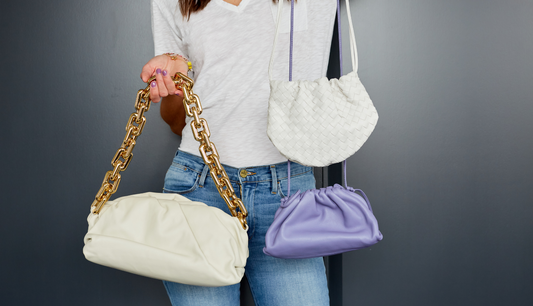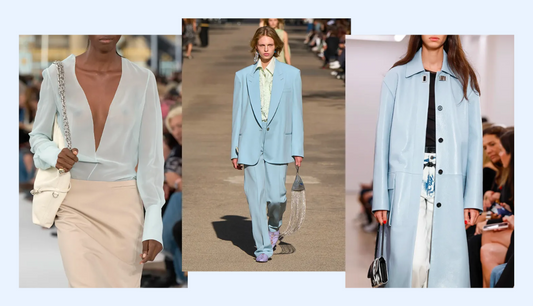
Your Plaid is on Fire.
The practice of destroying excess inventory by luxury retailers has once again come to light. This time Burberry shareholders spoke up after learning about the company's destruction of $38 million worth of product in 2018 (an increase from the $35 million they destroyed in 2017).
Rumors of this mythical practice have been stewing for decades, mainly from employees talking about their first-hand accounts. But Burberry isn't the only guilty party - Nike, Victoria's Secret, Chanel, Louis Vuitton and Ralph Lauren have been accused of doing the same. It's detrimental business practice considering how overpopulated our landfills already are. In the United States alone, consumers and corporations add 256 billion pounds of clothing to landfills each year.
Richemont reportedly destroyed $744 million of its own unsold products. I don't know about you, but I would love to buy a discounted Cartier watch. They unfortunately disagree.
So why would a brand go to such extremes as smashing watch faces, slashing perfectly good sweaters, or burning unused handbags when there are so many willing consumers? Brand perception. Many luxury brands believe the risk of selling their prestigious goods at a discount to us pedestrians would dilute brand exclusivity. Yes, that is a legitimate threat but not legitimate enough to supersede the trillions of greenhouse gas emissions contributed by the fashion industry annually. According to one report, "The best number we have now is about five percent of [global] greenhouse has emissions [come from] this sector. To give you some sense of perspective, that's about equivalent to the impact from the aviation sector, so al the planes flying around the world. Or in country terms, that's about equal to Russia. So it's pretty significant." Fashion is emitting at the same rate as a utility? Preposterous.
We don't disagree with the high-end retailers brand dilution concerns. We get it. The rarity of their products is the appeal, but there has to be a better way. We were happy to hear the investors at Burberry finally raised a brow at the environmental concerns impacted by the choice to save brand perception. One even asked why shareholders couldn't be given the chance to buy the items. Seems a small price to pay for investor loyalty.
Sustainability is at the forefront of conversations right now in the fashion industry. We know companies are actively working to improve their business practices and resource efficiency but we believe there is still failure to recognize the root of the issue, and in this case can work towards preserving brand exclusivity - Produce. Less. Stuff. If mass production stalled, brand cache would naturally stay in tact and bonus, there would be less unwanted inventory to light on fire.
You may also enjoy
-
 Read More
Read MoreDon’t Sell, Just Swap…or Rent?
Clothing swaps aren’t a new concept. If you had a sibling growing up, you probably have closet-sharing in your veins. However, the concept of swapping clothes has evolved into a...
-
 Read More
Read MoreOver Florals? Rent These 5 Prints Instead.
Is wearing florals in the spring becoming a fashion faux pas? That’s to be debated, but here's the scoop: according to @databutmakeitfashion, floral fashion has decreased by 15% this month,...
-
 Read More
Read MoreIcy Blue: Spring’s Coolest Shade to Rent
With a new season comes a new color palette. While we say goodbye to winter, one of its ethereal shades remains—icy blue. This latest addition to the minimalist palette exudes...




